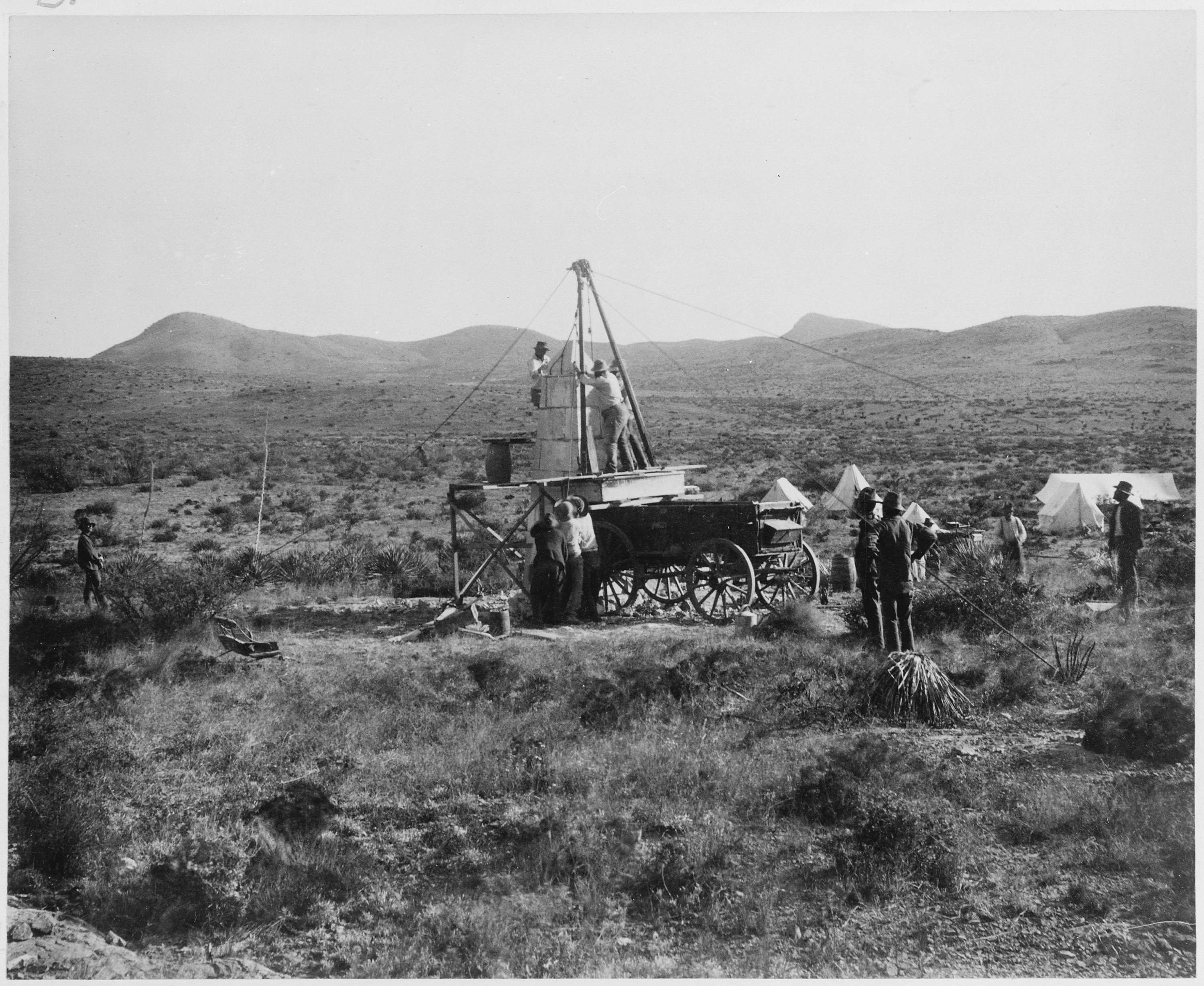Projects
Section A
Following on from its investigation of spatialization processes from the perspective of actors, in the SFB 1199’s second phase the Research Area A asks more specifically about the special role of spatial entrepreneurs. In this way, we want to further strengthen the intentional dimension of spatialization and the creation of spatial formats that differ from spatialization practices, whose possibly unintended effect are spatial formats. By selecting case studies that cover points and periods from over two centuries and that cover such diverse regions such as Western and Eastern Europe, North America, Africa, and Central, East, and South Asia, the Research Area has a sufficient empirical basis for theory formation while avoiding the danger of Eurocentrism.
Project A01
Spheres of Production and Circulation: Mass Culture between Europe and North America, 1830s to 1930s

Project A02
Innovative Technology Enterprises in Unlikely Places in Central Asia and Africa

Project A05
Digital Governance and the Respatialization of the Indian Nation State

Project A06
Chinese Engineers and their Spatial Imaginations: Architects of an Interconnected Nation, 1906–1937

Project A07
“Free Radicals”? Political Mobilities and Post-Colonial Processes of Respatialization in the Second Half of the 20th Century

Section B
Research Area B covers the historical development of respatialization up to the immediate present and is thereby concerned with the analysis of rise and decay, detachment and legacies of spatial orders, as well as with the entanglements and closures of spatial orders. The projects tend to move closer to the present, project B1 starts in the 19th century, while all other projects take a look at the 20th or 21st centuries. These projects cover colonial empires spanning various continents as well as transregional configurations of conflict, infrastructures, and medical treatment.
Project B01
The Respatialization of the World during the Formation of the Global Condition, 1820–1914: The Americas and the French Empire

Project B02
Spatial and Temporal Limitations of “Berlin’s Africa”: Between the Decline of a Spatial Format and the Dissolution of a Spatial Order

Project B03
Socialist Development Models for the “Third World”

Project B05
Cross-Border Enzymatic Hazards. Practices of Fighting Antimicrobial Resistance

Project B07
Interregionalism and Security in the Sahel: The African Union, ECOWAS, and the European Union

Project B09
The “Iron Curtain” between Static Spaces and Fluid Networks. Exclusion and (Re)Connection, 1960–2010

Section C
Research Area C focuses on the investigation of imaginations of spatialization in a world-regional comparative setting and through transregional interdependence analyses. In addition, imaginations of alternative spatial orders are presented as a response to the development of global interdependencies and flows, which can also undermine the legitimacy of existing spatializations. In such processes, the comparison between processes in different regions of the world has a decisive role. This holds true not only for the individual projects that deal with geographical societies or maps and atlases in very different countries, but also for the Research Area as whole, with its study of transregional interactions through literary imaginations and digital technologies in Asia and Africa.
Project C01
Spatial Semantics of Geography in the 19th and 20th Centuries

Project C02
Imperialist Geographies: The Transpacific and Circum-Caribbean Space in US Literature in the Period from 1880 to 1940

Project C04
Reimaginations of Land and Agriculture in the Context of Digitization

Project C05
Maps and Atlases as Mediators and Producers of Spatial Knowledge under the Global Condition

Project C06
“Off the Grid”: Infrastructures, Processes of Spatialization, and Drones in Africa

Former Projects
Project C05
Maps of Globalization: The Production and the Visualization of Spatial Knowledge

Project C04
Land Imaginations: The Repositioning of Farming, Productivity, and Sovereignty in Australia

Project C02
Spatial Fictions: (Re)Imaginations of Nationality in the Southern and Western Peripheries of the 19th-century United States

Project C01
“Our Field is the World”: An International Comparison of Geographical Societies 1821–1914

Project B07
“New Regionalisms” and Violent Conflicts in Africa: The Politics of the AU and ECOWAS in Mali and Guinea-Bissau

Project B05
Border-Transcending Assemblages of Medical Practices

Project B03
East-South Relations during the Global Cold War: Economic Activities and Area Studies Interests of East Central European CMEA Countries in Africa

Project B02
African-European Entangled Histories and Spatial Orders in “Berlin’s Africa”

Project B01
Between Reforming the Empire and Nation State Territorialization: The Transatlantic Cycle of Revolution 1770–1830

Project A05
The Spatial Impact of Microfinance Practices in India

Project A02
Peripherally Global: World Market Leaders in Rural Areas

Project A01
Between Urban Mass Culture and Transnational Entanglements, 1880–1930

Project A03
Taiwanese Religious Communities and their Internationalization Strategies (guojihua) since the 1980s

Project A04
Maras as Producers of Translocal Spaces of Violence in the Americas and Europe

Project B04
Remittances and a Transnational Moral Economy: El Salvador, Togo and the Philippines in a Comparative Perspective

Project B06
Gold Mining and New Regulations of (Sub)National Spaces in Africa

Project B08
Spatial Orders of Hunger: Food Insecurity in North Africa
